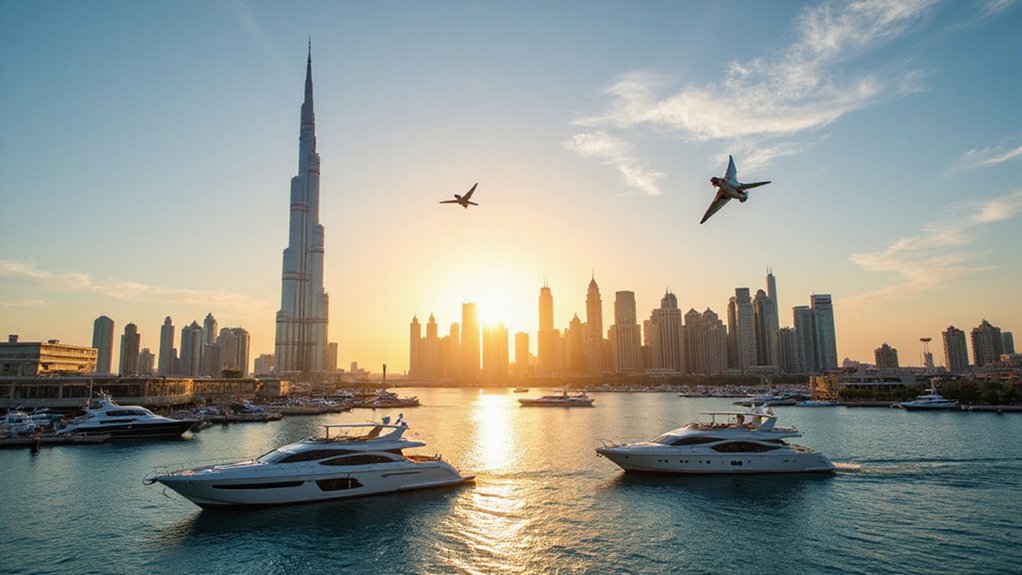While Silicon Valley‘s crypto entrepreneurs navigate an increasingly hostile regulatory maze of SEC enforcement actions and tax complications, the United Arab Emirates has quietly assembled what amounts to a digital asset paradise—complete with zero capital gains taxes, extensive regulatory clarity, and the kind of governmental enthusiasm typically reserved for oil discoveries.
The migration isn’t merely about tax avoidance (though the absence of personal income tax and capital gains levies certainly doesn’t hurt). The UAE has constructed a thorough regulatory framework through multiple agencies—the Central Bank of the UAE, Securities and Commodities Authority, and Virtual Assets Regulatory Authority—that actually clarifies rather than obfuscates crypto operations.
Unlike most jurisdictions that muddy crypto waters, the UAE’s tri-agency framework actually provides the clarity entrepreneurs desperately need.
Recent regulatory updates favor dirham-backed stablecoins while banning algorithmic tokens, providing the kind of specific guidance that crypto entrepreneurs find invigoratingly absent elsewhere. In contrast, the United States is advancing comprehensive stablecoin regulation through the GENIUS Act, which establishes strict federal frameworks requiring full reserve backing and dual licensing options for issuers.
Consider the practical implications: most virtual asset transactions became VAT-exempt in November 2024, eliminating the 5% burden that previously complicated crypto trades. Free zone companies enjoy corporate tax exemptions, while the absence of withholding taxes on cross-border crypto payments transforms international operations from bureaucratic nightmares into streamlined processes.
It’s almost as if someone designed a jurisdiction specifically for digital asset accumulation.
The government’s strategic initiatives extend beyond mere tax policy. The UAE actively develops central bank digital currencies like the Digital Dirham and participates in global cross-border CBDC projects involving India and China.
Free zones such as RAK Digital Oasis provide tailored environments for Web3, NFTs, DAOs, and metaverse ventures—essentially creating regulatory sandboxes where innovation can flourish without constant compliance anxiety.
Yet this isn’t a regulatory Wild West. The UAE maintains stringent anti-money laundering and counter-terrorist financing controls, requiring enhanced due diligence for licensed entities.
Compliance requirements covering licensing, capital adequacy, and monitoring guarantee operational standards that satisfy both local and international investors. The result is a jurisdiction that manages to be simultaneously permissive and protective—a combination that traditional financial centers struggle to achieve.
The coordinated approach across federal and free zone authorities reduces ambiguity while boosting international confidence, creating an ecosystem where crypto moguls can operate with unprecedented clarity and efficiency. When navigating these complex regulatory waters, specialized legal solutions become essential for entrepreneurs seeking to establish compliant operations in the UAE’s evolving digital asset landscape. The UAE’s crypto ecosystem has attracted over $30 billion in crypto-related investments during 2024, demonstrating the tangible financial confidence in this regulatory framework.





